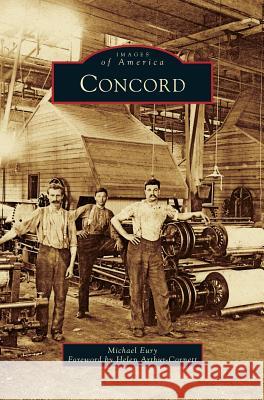Concord » książka
Concord
ISBN-13: 9781531658397 / Angielski / Twarda / 2011 / 130 str.
When state legislator Stephen Cabarrus sought a compromise between quarreling Scotch-Irish and German settlers over the location of Cabarrus County's seat, his appeal led to a "concord" that gave birth to one of North Carolina's most charming cities. Not long after its 1796 founding, Concord began a transformation from an agricultural community into a textile-manufacturing mecca as captains of industry built empires exploiting the cotton that so abundantly sprouted from the region's fruitful soil. By the advent of the 1900s, textiles' prosperity encouraged an architectural renaissance within Concord's downtown, where the stately buildings, churches, and residences still stand today. While the cotton mills that made Concord famous are no more, the city has transitioned into a fast-paced motorsports center and the home of North Carolina's most popular tourist destination, Concord Mills shopping mall.
When state legislator Stephen Cabarrus sought a compromise between quarreling Scotch-Irish and German settlers over the location of Cabarrus Countys seat, his appeal led to a "concord" that gave birth to one of North Carolinas most charming cities. Not long after its 1796 founding, Concord began a transformation from an agricultural community into a textile-manufacturing mecca as captains of industry built empires exploiting the cotton that so abundantly sprouted from the regions fruitful soil. By the advent of the 1900s, textiles prosperity encouraged an architectural renaissance within Concords downtown, where the stately buildings, churches, and residences still stand today. While the cotton mills that made Concord famous are no more, the city has transitioned into a fast-paced motorsports center and the home of North Carolinas most popular tourist destination, Concord Mills shopping mall.











